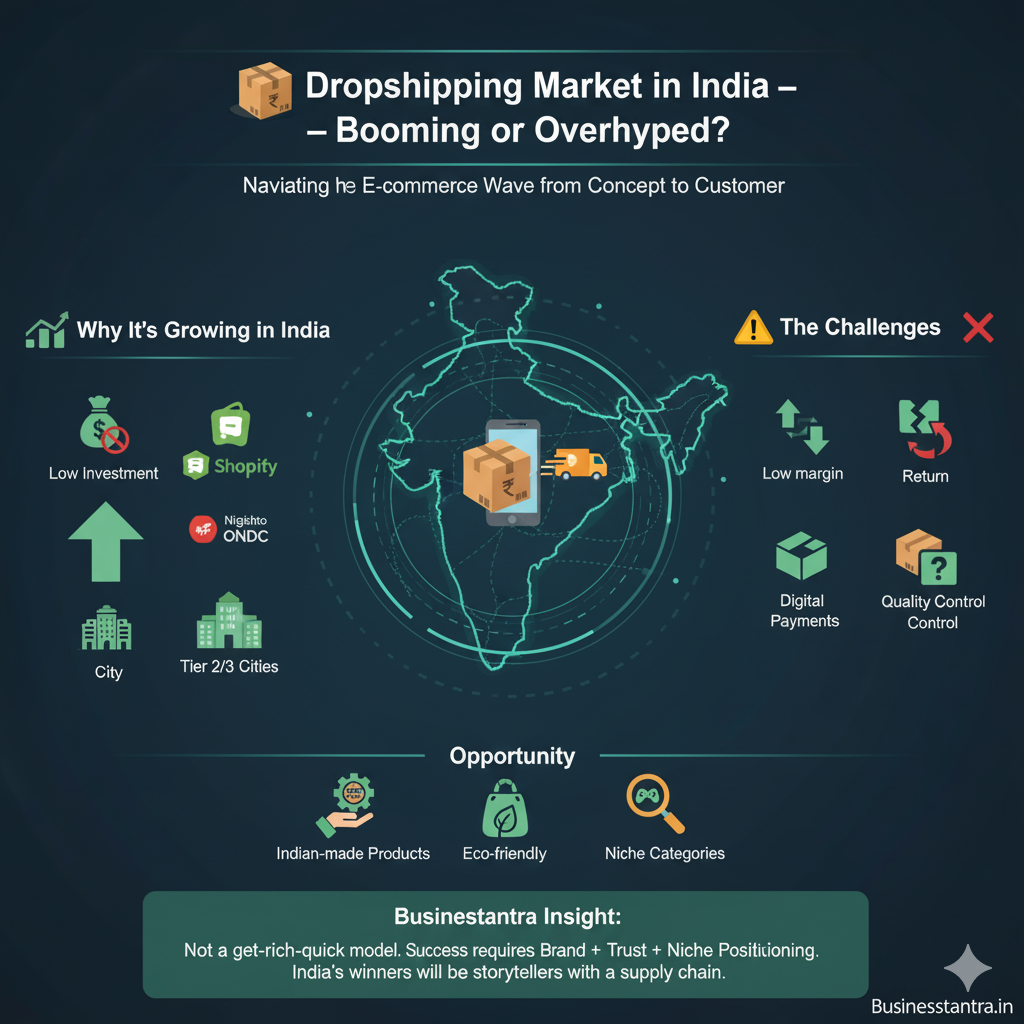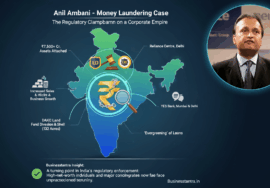20 profit-making small business ideas you can start with as low as Rs 20,000
[ad_1]
Starting a business is about making ideas happen. But aspiring founders often find themselves struggling – with investments and ideas – before they join the hustle.
You may have a bunch of ideas in your mind, but there are times when those ideas lack proper direction and you decide to switch plans. This is the period where most aspiring founders struggle to find a balance.
Starting a business needs utmost determination and confidence, but you have to be very clear about your business idea before you step into the entrepreneurial arena.
To make the hustle easier, SMBStory has drawn up a list of 20 profitable manufacturing business ideas that you can start with investments as low as Rs 20,000.
Cotton Buds
Image credits: Shutterstock
The cotton buds market is being driven by growing per capita expenditure of consumers, increasing awareness of hygiene, rising population, etc. Small manufacturers of cotton buds are required to source the spindle/stick, the absorbent material (cotton), and the packaging for the product.
The raw material then goes into the automatic cotton bud-making machines, many of which package the products too. The machines are available as per the quality and output requirements of the entrepreneur.
The cotton buds manufacturing business can be started with an investment of Rs 20,000-Rs 40,000.
Handmade candles
Image credits: Shutterstock
Candles are always in demand, which is what makes this an extremely popular business option. The traditional demand for candles comes from religious and decoration purposes. During festivals, the demand is extremely high. Otherwise too, these days the demand for scented and therapeutic candles is also on the rise with many restaurants, households, and hotels using them to create an ambience.
The candle-making business can be initiated from home with low investment of approximately Rs 20,000-Rs 30,000.
The raw materials used to start the business include wax, wick, moulds, thread, aroma oils, and more.
Apart from the major raw materials, you also need to have some candle-making equipment. This includes a melting pot, thermometer, pour pot, weighing scale, hammer, and an oven (to melt wax).
Pickles
Image credits: Shutterstock
Pickles are a traditional food item in India and are extremely popular. You will find at least one variant of pickle in every Indian household. Thus, if you want to start small, a pickle business is a safe and easy option.
Apart from the Indian market, Indian pickles are greatly in demand abroad.
You can start this business at your home with a small capital of approximately Rs 20,000-Rs 25,000.
Coconut Hair Oil
Image credits: Shutterstock
People these days have become conscious about the use of natural products. Many do not hesitate to pay a premium on quality products when it comes to health and beauty. Therefore, starting a coconut hair oil unit can be a good small business idea.
This low-cost business idea needs an approximate investment of Rs 1 lakh that involves machinery setup. You can start either by trading from manufacturers or renting out a small farmland or can work with farmers in your area.
Incense sticks (agarbatti)
Image credits: Shutterstock
India’s agarbatti (incense sticks) market is growing due to large demand in the country and abroad.
Agarbattis are used in most Indian households, and their popularity and demand picks up during the festive season. Their exports have also grown, on the back of the rising popularity of meditation in other countries and the associated use of agarbattis.
The first step of small-scale manufacturing of agarbattis involves buying bamboo sticks and essential oils with fragrances such as sandalwood, jasmine, rose, champa, etc. from the market. The sticks are coated with the oils, and dried.
Automatic and semi-automatic agarbatti-making machines, costing upwards of Rs 50,000, can be used for bulk production.
Once the sticks are packed and labelled, they are ready to be sold in local markets.
Buttons
Image credits: Shutterstock
Buttons are one of the most essential trimmings used in the garment industry and have huge market potential.
From plastic to fabric and steel buttons, there are various categories in this niche that you can select depending upon your choice of business.
You can either rent out a space or start at home with a basic investment of approximately Rs 30,000-Rs 40,000.
Designer lace
Image credits: Shutterstock
Lace is commonly used in garments and for craft work. It is a traditional form of business and can easily be started at home.
With emerging fashion trends, the demand for different kinds of laces has increased. Laces are also exported to various countries, which makes this a good option for those who want to start small.
Laces can be designed manually, through bobby machines, or fully computerised machines – after you decide on the scale of operations.
You can start this business with a low investment of approximately Rs 25,000-Rs 50,000.
Shoe laces
Image credits: Shutterstock
India is the second-largest producer of footwear after China. The shoes the country manufactures can be segregated into categories like sports, formal, casual, and others.
The demand for shoelaces is high as well, and manufacturing shoelaces has become a lucrative small business idea.
Shoelaces are manufactured by weaving a band and fastening the aglet (the hardened end of the lace). The simple, woven band is usually made from cotton, polyester, nylon, polypropylene, etc, and the aglet is made of plastic.
Apart from the material for the lace and aglet, shoe lace braiding machines are also required. They can weave several metres of lace per minute, after which acetone can be used to fasten the aglet to the woven band.
You can start this business with a small investment of approximately Rs 25,000 depending upon the kind of machinery you want to deploy.
Ice cream cones
Image credits: Shutterstock
Everyone screams for ice cream, one of the most popular desserts today. The increasing consumption of ice cream has led to a rise in the demand for ice cream cones.
Therefore, if you want to start small, this idea could be a profitable business option. You can start an ice cream cone manufacturing unit in a small space by investing approximately Rs 1 lakh to Rs 1.5 lakh.
However, if you want to operate on a larger scale with high capacity machinery, the investment cost goes a little higher.
Handmade chocolates
Image credits: Shutterstock
When it comes to chocolate consumption, India is on top of the chart. Be it sweet or bitter, chocolate is a mood lifter and stress buster. According to Mintel, sales of chocolate confectionery in retail markets grew by 13 percent between 2015 and 2016 in India. Therefore, if you want to start your business and don’t have an idea, manufacturing chocolate can be a lucrative opportunity.
You need to develop a product line to start off. An approximate capital of Rs 40,000-Rs 50,000 will be required to purchase raw materials and packaging.
However, if you want to deploy a piece of machinery for a larger production scale, the cost may rise up to Rs 2 lakh-Rs 3 lakh. Your volume production will be easier with mixing, cooking, and cooling equipment. Select the type of equipment to fit the scale of your operation.
Papad
Image credits: Shutterstock
The thin, crispy food – fried or roasted – is a common accompaniment to most meals across India. Papads are mandatory at several occasions, functions, celebrations, and parties, which means demand is always high.
The manufacturing process is relatively simple once basic ingredients such as wheat flour, spices, and oil are sourced.
The large-scale papad manufacturing industry is highly competitive, but entrepreneurs can start with a small investment of approximately Rs 30,000-Rs 40,000 and sell to local department stores.
Entrepreneurs can also experiment with flours made from lentils, chickpeas, rice, tapioca, etc to differentiate their offerings from others.
Noodles
Image credits: Shutterstock
Noodles, especially the instant variety, are a popular snack in India across rural and urban markets. The noodle manufacturing process is simple and requires basic ingredients such as wheat flour, salt, sugar, starch, spices, vegetable oils, etc.
Both semi-automatic and fully automatic noodle-making machines are available in the market. The process of making noodles involves blending flour, starch, and sodium bicarbonate, mixing the dough, and passing it through the machine. The noodles are cut into the desired shape and size, dried, and packaged.
Low capacity noodle-making machines cost over Rs 40,000 while premium ones cost anywhere upwards of Rs 1.5 lakh.
Disposable plates and cups
Image credits: Shutterstock
Disposable food-grade plates and cups are used extensively in India during events, functions, picnics, etc. They are also used on a large scale by street vendors and hawkers.
As they are widely used and have been inexpensive to make for a long time, the market has matured. They are usually made of paper, which has emerged as an alternative to plastic, steel, glass, etc.
To make paper plates and cups, paper can be acquired from local scrap shops at low rates. The major part of the investment goes into acquiring disposable plate-making machines. They cost over Rs 50,000, depending on their capacity.
Jute bags
Image credits: Shutterstock
The use of this biodegradable and reusable “golden fibre” is increasing by the day. With the world moving to ban plastic, a jute bag manufacturing business is a good choice.
The jute bag making process is simple. Different types of bags are popular in the market and can be used for multiple purposes.
Starting up this business demands a small capital investment of around Rs 50,000-Rs 1 lakh. You can begin in a small area of around 500 sq ft.
Staple pins
Image credits: Shutterstock
Staplers are used extensively in schools, colleges, government institutions, offices, and wherever paperwork is involved. Staplers cannot work without stapler pins, and the pins are usually made from white galvanised iron wire. Using good quality iron will ensure the pins are sturdy and long lasting.
Automatic staple pin-making machines simplify the process of production. The machine flattens the round iron wire and produces the pins in predetermined lengths.
Staple pin-making machines that can make 350 pins per minute cost upwards of Rs 3.5 lakh.
Paper making
Image credits: Shutterstock
Manufacturing paper is a low-cost business idea. Paper is used everywhere. From schools and colleges to offices and big corporates, the use of paper is certain. This translates into an unending demand for this product- despite the world going digital.
From A2, A3, and A4 sheets to small copies, there is the vast scope of expansion too in the paper-making industry. However, you need to be wise in selecting the manufacturing location to avoid high transportation costs.
You need approximately Rs 2 lakh-Rs 2.5 lakh for setting up the machinery and getting the raw materials to start the business.
Organic soap
Image credits: Shutterstock
Organic soaps are a really niche market to tap if you wish to start with a small business. It is a high demand product used by billions daily.
To start a small herbal soap business you need raw materials like glycerine, herbs, essential oils, moulds, microwave, and more. An investment of about Rs 1.5 lakh to Rs 2 lakh is required for scaled production.
You can start the business at home or rent out a separate small space. Various government courses are available if you wish to learn the soap-making process.
Tempered glass for smartphones
Image credits: Shutterstock
India’s smartphone market is growing despite the global market shrinking. The Indian market saw a shipment of 32 million units in Q1 2019, according to International Data Corporation (IDC).
Smartphone accessories such as tempered glass are also in big demand. These are made in high temperature machines where glass is heated and then rapidly cooled. The tempered glass also has to pass hardness tests, breaking tests, and dimension checks. The tempered glass also contains silicon, additional protection, and glue. The glue, which ensures the tempered glass sticks to the smartphone screen, is an essential component of manufacturing.
Low capacity tempered glass making machines cost around Rs 75,000 while high capacity ones cost over Rs 1.5 lakh.
Envelopes and files
Image credits: Shutterstock
Despite communication going digital, there is still a large demand for paper envelopes and files in schools, colleges, corporates, etc. Different kinds of paper, such as maplitho paper or scrap paper, can be used, based on buyers’ requirements. Gum and glue also need to be purchased from the market.
Envelope-making machines cost anywhere between Rs 1.5 lakh and Rs 11 lakh.
When paper is fed into these machines, it is cut to specific sizes. After the gum is applied, the envelope is dried and sent for packaging. These products can be sold at departmental stores, supermarkets, or directly to schools, colleges, and corporate offices.
Paper bags
Image credits: Shutterstock
Eco-friendly bags and packaging made from paper have become popular as people realise just how harmful non-biodegradable plastic bags are to the environment. Paper bags can be used to pack shopping items, food items, medical items, jewellery, and more.
Paper bag making can be started small scale with low investment. Automatic paper bag-making machines start at around Rs 5 lakh and have a great capacity – around a few thousand units per hour. Semi-automatic machines are also available under Rs 3 lakh, but they involve more manual work and labour.
Entrepreneurs also need to invest in sourcing raw materials such as paper sheets, ink, printing chemicals, tags, etc.
[ad_2]
Source link










